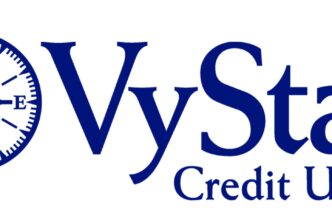It’s time to be hyper-vigilant about social distancing and sanitizing, and it’s equally important to be cautious of cyber security breaches and the proliferation of scams. These duplicitous activities could involve the use of phishing emails, social media platforms, text messages or fake websites.
According to Krebs on Security, some of these deceptions are aimed at individuals who want to help others. In a report this week, “Coronavirus widens the money mule pool,” author Brian Krebs talks about such fraud and “people who get roped into money laundering schemes under the pretense of a work-at-home job offer.”
Krebs shares an example, “On the surface, the Web site for the Vasty Health Care Foundation certainly looks legitimate. It includes various sections on funding relief efforts around the globe, explaining that it “connects nonprofits, donors, and companies in nearly every country around the world.”
Instead, it’s a site that pulled information from a legitimate charitable entity. Read more here.
It’s important also to be aware of phishing emails said to contain malicious links or attachments impersonating government agencies such as Centers of Disease Control (CDC), World Health Organization (WHO) and John Hopkins University. Many of these communications may be prompting false information about the virus, asking for donations or selling a product to prevent the virus.
The Federal Trade Commission also offers guidelines to protect workers who are telecommuting as part of social distancing.
- Start with cybersecurity basics. Keep your security software up to date. Use passwords on all your devices and apps. Make sure the passwords are long, strong and unique: at least 12 characters that are a mix of numbers, symbols and capital and lowercase letters.
- Secure your home network. Start with your router. Turn on encryption (WPA2 or WPA3). Encryption scrambles information sent over your network so outsiders can’t read it. WPA2 and WPA3 are the most up-to-date encryption standards to protect information sent over a wireless network. No WPA3 or WPA2 options on your router? Try updating your router software, then check again to see if WPA2 or WPA3 are available. If not, consider replacing your router. For more guidance, read Securing Your Wireless Network and Secure Remote Access.
- Keep an eye on your laptop. If you’re using a laptop, make sure it is password-protected, locked and secure. Never leave it unattended – like in a vehicle or at a public charging station.
- Securely store sensitive files. When there’s a legitimate business need to transfer confidential information from office to home, keep it out of sight and under lock and key. If you don’t have a file cabinet at home, use a locked room. For more tips, read about physical security.
- Dispose of sensitive data securely. Don’t just throw it in the trash or recycling bin. Shred it. Paperwork you no longer need can be treasure to identity thieves if it includes personal information about customers or employees.
- Follow your employer’s security practices. Your home is now an extension of your office. So, follow the protocols that your employer has implemented.
For up-to-date information on the Coronavirus visit the Centers for Disease Control and Prevention (CDC) and the World Health Organization (WHO).






